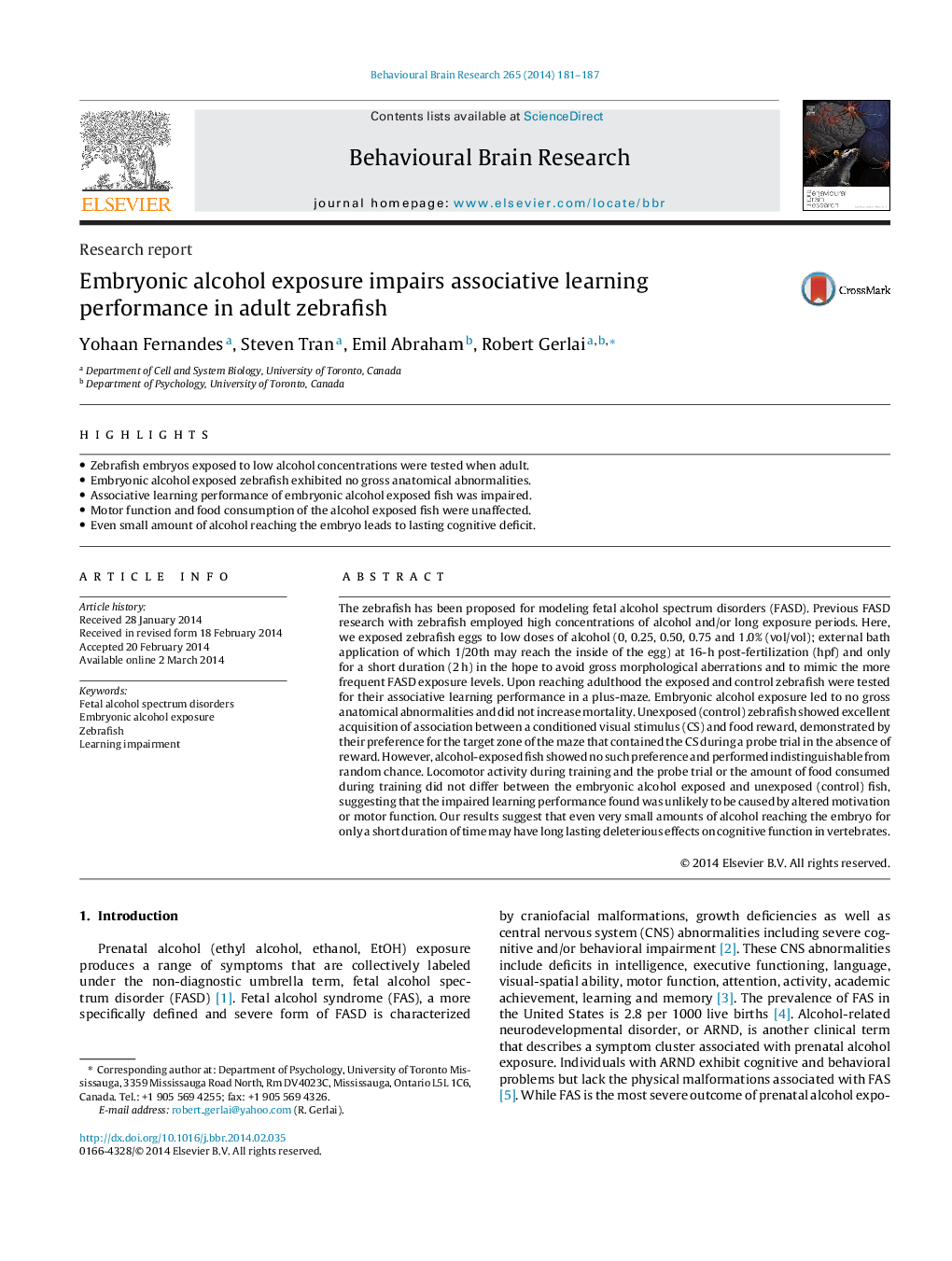| Article ID | Journal | Published Year | Pages | File Type |
|---|---|---|---|---|
| 6258312 | Behavioural Brain Research | 2014 | 7 Pages |
â¢Zebrafish embryos exposed to low alcohol concentrations were tested when adult.â¢Embryonic alcohol exposed zebrafish exhibited no gross anatomical abnormalities.â¢Associative learning performance of embryonic alcohol exposed fish was impaired.â¢Motor function and food consumption of the alcohol exposed fish were unaffected.â¢Even small amount of alcohol reaching the embryo leads to lasting cognitive deficit.
The zebrafish has been proposed for modeling fetal alcohol spectrum disorders (FASD). Previous FASD research with zebrafish employed high concentrations of alcohol and/or long exposure periods. Here, we exposed zebrafish eggs to low doses of alcohol (0, 0.25, 0.50, 0.75 and 1.0% (vol/vol); external bath application of which 1/20th may reach the inside of the egg) at 16-h post-fertilization (hpf) and only for a short duration (2Â h) in the hope to avoid gross morphological aberrations and to mimic the more frequent FASD exposure levels. Upon reaching adulthood the exposed and control zebrafish were tested for their associative learning performance in a plus-maze. Embryonic alcohol exposure led to no gross anatomical abnormalities and did not increase mortality. Unexposed (control) zebrafish showed excellent acquisition of association between a conditioned visual stimulus (CS) and food reward, demonstrated by their preference for the target zone of the maze that contained the CS during a probe trial in the absence of reward. However, alcohol-exposed fish showed no such preference and performed indistinguishable from random chance. Locomotor activity during training and the probe trial or the amount of food consumed during training did not differ between the embryonic alcohol exposed and unexposed (control) fish, suggesting that the impaired learning performance found was unlikely to be caused by altered motivation or motor function. Our results suggest that even very small amounts of alcohol reaching the embryo for only a short duration of time may have long lasting deleterious effects on cognitive function in vertebrates.
